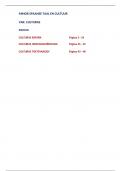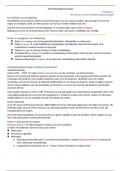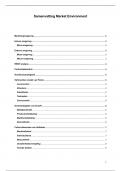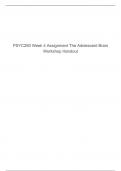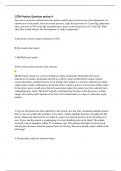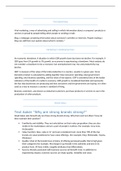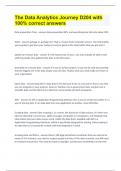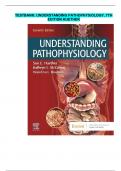Other
Psychology Research Proposal Assignment: The effect of a pesco-vegetarian diet on the cognitive performance of older adults with type-2 diabetes mellitus: A longitudinal intervention study
- Course
- Institution
Research Proposal Assignment: A longitudinal, single-arm nutrition intervention study with a pretest-posttest design was proposed to investigate the effect of a pescatarian diet on the cognitive performance of older adults with type-2 diabetes mellitus. Grade: A, Referencing style: APA
[Show more]




